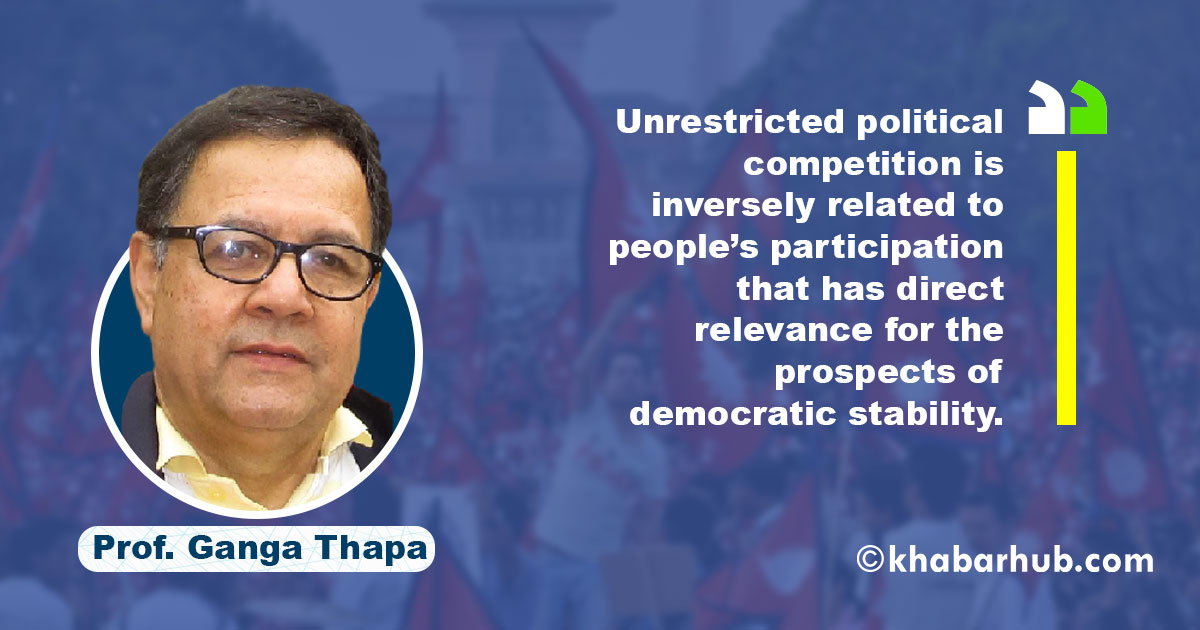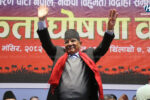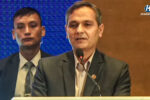There has been an escalating cynicism toward Nepal’s republican democracy when one witnesses ‘both a profound failure by the state to provide services and stable governance’, especially when political leaders have little or no success in improving the public sphere to initiate multilateral development. The contemplation that the potential for creative and revolutionary transformation should be exercising constitutional authority, and that everyone has an equal opportunity to succeed has been gradually diminishing.
The rise of youth frustration undermines the basis of power due to the ruler’s failure to pursue wide-scale development and formulate appropriate policies to maintain cohesion and deliver services in order to achieve the benevolent objectives. Basically, such leaders would be incompetent to play a leading role while responsibly protecting values and principles of democracy in terms of maintaining transparency, accountability, and rule of law.
The difference here is that political awareness grows when the elites are polarized with an increase in general political thinking to the feeling that one may influence decisions to suit the country’s needs after the abolition of the feudal monarchy.
There is no doubt that democratic rule is a good way of governing. Nepal has achieved such polity since the transition from monarchy to republic, although one may notice a number of policy dilemmas and warped political discourses, according to some political scientists and economists, that help organize worthwhile interactions with those who are the most powerful officeholders and top decision-makers or have direct access to them to promote for significant social transformation in order to have long-term political advantages. The difference here is that political awareness grows when the elites are polarized with an increase in general political thinking to the feeling that one may influence decisions to suit the country’s needs after the abolition of the feudal monarchy.
Others have also noted the examples of populist politicians that brought them to power, which must be taken into consideration. Nevertheless, democratic states do need something like a common identity.
In fact, organized interests cannot always get their first choice. However, as we might expect, political engagements, socioeconomic attributes, organized social incentives, and dynamic social interactions do give the people the power to make decisions through a reliable, transparent and democratic decisionmaking process by which both the government and the people may identify the shared values and aspirations that are particularly crucial to develop a genuinely new political alternative with an informed understanding of politics.
It is said that unrestricted political competition is inversely related to people’s participation that has direct relevance for the prospects of democratic stability and survival; although one may also see it as a threat to liberal regimes and individual rights in general. In fact, Zakaria (2004) cites a handful of historical events, including Hitler’s rise from the Weimer Republic. Others have also noted the examples of populist politicians that brought them to power, which must be taken into consideration. Nevertheless, democratic states do need something like a common identity.
Although no empirical data scaling the individual preferences and conceptual distinction among republicanism, secularism, federalism, and other relevant provisions as provided in the 2015 constitution is available, the public attitude toward political institutions is usually found negative. So is the case with the political process across different levels of government that concerns the key elements for orderly functioning of politics, protection of civil and political liberties and justice, and evaluation of democracy in practice what Huntington in his Third Wave, describes as the supremacy of law that is imperative for the existence of the rule of law and good governance.
Nepalis are working hard for it since the abolition of feudal monarchy, although some of the provisions such as the provincial and municipal governments incorporated in the constitution are not a historical reality and are likely to meet obstacles as found in a democratically governed country, due to the relatively uninformed political elites who were unaware of many of the problems associated with the idea of the state.
This is the key to the political influence measured by the political preferences of the people in various policy domains that were not previously in existence.
It is also clear that federalism, republicanism, and secularism are not only ideal principles but pertinent conditions that today become ‘politically significant only when they are connected to consequential political actors or issues’ (Bartels 2008), which may require enabling the citizens to choose one who would represent their views, interests, and concerns.
While it may be true that a political party is influential while attempting to elect its candidates to offices, it must demonstrate widespread public recognition in contemporary Nepal and therefore must be distinctive in several important respects. There are, of course, shortcomings during the actual operation; nevertheless, political parties are perhaps the most important vehicles to achieve policy goals that could lead to aggregate and integrate masses of individuals and build a good deal of political awareness among diverse groups and facilitate for the foundation of a wide variety of settings that can greatly impact the segments that consistently and noticeably remain left out or widely disillusioned. This is the key to the political influence measured by the political preferences of the people in various policy domains that were not previously in existence.
It would be equally important to bear in mind that the separation of powers created by the constitution has implications driven by devolution of powers, provisional and municipal governments are viewed distinct yet correlated, and they should devote to policymaking on a factual basis, especially by assigning the people at the core while deliberating upon a public policy matter and analyzing a broad range of issues to devise the ways in which the citizens’ preferences are met and democratic values are established.
The recent political changes have undoubtedly contributed to having a thirst for the formation of liberal democracy that has begun to dominate the public realm, although the growing economic inequality between the rich and the poor is a much more challenging task to overcome for a country’s prosperity. There is, then, the need for political support for egalitarian redistribution; there must be sufficient political coherence to determine the policy goals that have major ramifications for economic fortune so that political actors may persuade people to determine which issues be dealt with and on what terms in the light of prevailing norms and sentiments in the society.
To be continued…
Views expressed in this article are the author’s own and do not necessarily reflect the stance of Khabarhub.









Comment